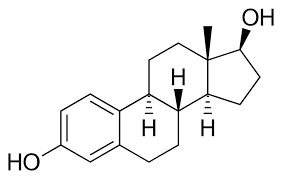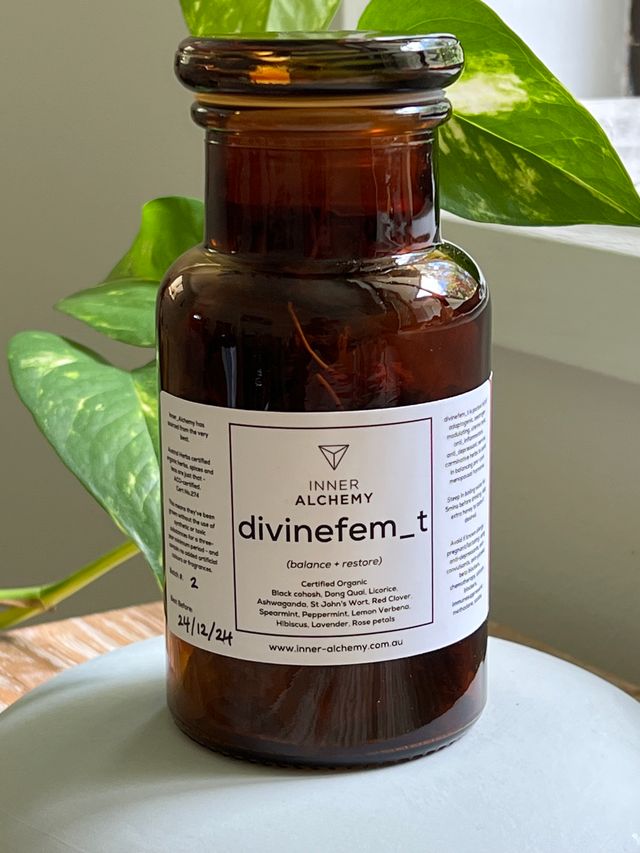Categories
Metabolic Alchemy
Get 1:1 coaching with Carly with her Metabolic Methodology & Tools.
PROGRAMS
ONE COACH - ONE SOLUTION
Naturopath, Nutritionist, Yoga Teacher, PT.
No Gym - No Travel - Less Fuss
Nail Your Metabolism
Hi, I'm Carly

Your Sex Hormones or Reproductive hormones are powerful and important parts to how our body works. Not just for reproduction but for the health of our brains, bones, muscles and metabolism. Luckily we can balance these easily naturally without the need for hormone replacement in most cases.
Estrogen, Progesterone and Testosterone are all potent mood regulators, helping to influence the release of neurotransmitters.
Neurotransmitters affect every cell, tissue, and system in your body. And because neurotransmitters are functionally integrated with the immune system and the endocrine system (including the adrenal glands), neurotransmitter imbalances can cause widespread health problems such as:
- Brain fog – loss of mental focus, ADD, ADHD, impaired memory, poor decision making;
- Fatigue;
- Insomnia – difficulty falling asleep, staying asleep, or both;
- Pain – migraines, fibromyalgia
- Obesity – metabolic syndrome, insulin resistance, and diabetes;
- Mood disorders – depression, mood swings, irritability
- Anxiety – panic, obsessions, PTSD
- Behavioral disturbances – addictions, binge eating, compulsions impulsivity, gambling, autism; and
- Hormonal imbalances – PMS, estrogen dominance, low testosterone, hypo-thyroidism.
For example, Progesterone is our ‘Cool & Calm’ hormone, vital to the health of our menstrual cycle…and sanity pre-menstrually. If you’re low in progesterone you will feel irritability, anger, frustration, weepy, teary, sore boobs and your hair may fall out. Your periods may be spotting, light or heavy, short in length, and possibly some acne just before your period.
Hot flashes, sleep problems, mood swings and crazy periods are some classic signs of peri-menopause. If you’re over 40, this can occur for up to 10 yrs before menopause. This is when estrogen goes on a roller coaster ride, up and down and up again.
Estrogen is out ‘Happy Hormone’. High estrogen can also cause sore boobs, heavy periods, fluid retention, irritability and can lead towards Endometriosis. Low estrogen causes depression, hot flushes and night sweats. We need estrogen for proper insulin sensitivity and help us maintain healthy body weight.
Women also require Testosterone for strength, however in some women, excess androgens lead to PCOS (Polycystic Ovarian Syndrome), facial hair, acne and can disrupt our cycles greatly.
WHY ARE YOUR SEX HORMONES IMPORTANT?
Your body is composed of a variety of different hormones, including growth and sex hormones, which carry messages between your organs and cells. Hormones are secreted by glands in the endocrine system to help the body stay balanced and function optimally. Aging is associated with a loss of sex hormones in both men and women. Replacing those lost male and female sex hormones can restore feelings of well-being, sex drive and sexual pleasure, energy levels, plus reverse muscle and bone loss along with other functions that are associated with aging. By doing this, we can age more slowly and have a better quality of life into old age.
Who wants to age slowly? … I do!
Estrogen is a pro-growth hormone, its main function in the body is growth and development. There are three different forms of estrogen: estradiol, estrone, and estriol. Estradiol is our strongest and most stimulating estrogen. It builds bone, slows aging, raises libido, regulates appetite, and boosts serotonin. It’s super important for mood and a good nights sleep. Estradiol is vitally influential to our body’s function, regulating the expression of over a thousand genes!
Progesterone is considered the counterpart to estrogen. One side of the see-saw. It is the antagonizer to estrogen-driven growth in the lining of the uterus. Progesterone is essential to the premenstrual cycle. It rises during the second part of the cycle to reduce premenstrual syndrome and prepares the uterus for implantation of a fertilized egg. Additionally, progesterone is needed to support a healthy pregnancy, with low levels possibly causes for miscarriage. Progesterone is also neuroprotective. An imbalance in the ratio of estrogen to progesterone can lead to many problems with PMS symptoms like irritability, bloating, fluid retention, headaches, and fibroids. It works with estrogen to strengthen bones, sustain cholesterol levels, and support libido. It works with the Thyroid to boost metabolism. Prevents auto-immune disease and protects against breast cancer. Nourishes our hair and skin.
I LOVE PROGESTERONE!
Testosterone helps to maintain healthy muscle mass, stamina, and strength. It also supports libido, energy, bone density, memory, and well-being. Testosterone is also necessary in proper balance for women. A deficiency of testosterone can also have negative effects on women, including low energy, decreased libido and well-being.

HOW TO BALANCE?
Now you know how important these hormones are for your health, I bet you’re keen to find out whether you have enough of them. But before you rush off to get some testing done, you should know a bit about how to test for them.
Taking a blood test on any day of your cycle is incorrect. Your doctor should direct you to the correct day you should have them tested. Often in my experience they do not and surprisingly may have little knowledge of the female hormone cycle and when is the correct day to test.
Progesterone is only made in the last 10-14 days after ovulation, so testing before you ovulate will not show whether you have adequate levels and whether it’s resulting in the symptoms you’re experiencing. The best time to test Progesterone is when it’s at it’s highest, approximately 1 week before your period – Day 21.
- Regular cycles: If your period is short or long in duration normally, it does not matter. Just test approx 5-7 days before you normally have your period. Thats if your period is regular and consistent.
- Irregular cycles: If it’s a bit harder to know what day you will have your period because it’s always changing, then try to test at 5-7 days after you ovulate.
- How do you know when you’re ovulating?Cervical Mucus – this will be a nice egg white consistency, Twinge in your ovaries, Temperature charting – Some great fertility apps on your phone help you track your temperature each day and predict when you’re ovulating. Temp will rise typically by 0.5 degrees C after ovulation. You can also buy ovulation thermometers. Tests- Can use ovulation test strips to help.
What if you are on the Pill or have a Mirena/IUD?
Almost all birth control switch off your progesterone, so no point testing on the Pill. The exception to this rule is if this birth control is a Mirena or Skyla IUD. They allow ovulation despite some people still not having a period with them. Look out for your ovulation signs and then test 7 days after.
NB: You will have almost no progesterone post menopause unless on bio-identical hormones.
HOW TO INTERPRET RESULTS
You should have higher progesterone in the Luteal Phase – greater than 25nmol/L. Estradiol should not exceed 270 pg/mL (1000 pmol/L) on a blood test. It’s high again in the middle of the luteal phase, which is when I test it together with progesterone.
The complexity comes then in looking at these results in combination with a number of other hormones and blood pathology in order to determine what is causing the imbalance. Also if your results look normal and you have all these symptoms occurring, then a skilled practitioner will know what to look.
HOW TO FIX THEM
Hormones have such an enormous role in our health, when they are out of whack, great discomfort can occur. Let’s take a look at what things can be causing hormone imbalance so that you can get to work fixing them.
AVOID the PILL and choose HRT wisely
Contrary to many peoples and doctors belief, HRT and the PILL can actually be doing much more serious harm than good.
The estrogen in hormonal birth control is a xenoestrogen called ethinylestradiol. It’s much stronger than natural estradiol, and it further contributes to estrogen excess by altering intestinal bacteria.
The progestins in hormonal birth control are not progesterone. The many progestins used in hormonal birth control and hormone replacement are something different. Progestin increases blood clots, hair loss, anxiety, depression and increases risk of breast cancer.
The HRT and PILL deplete your body of several B vitamins (riboflavin, B6, B12, and folic acid), vitamin C, magnesium, and zinc. The PILL causes extreme mood disruption and can often leave women feeling out of control of their feelings.
A WHI study he nasty in 2002 proved, HRT duo Premarin (horse estrone) and Provera (medroxyprogesterone) can cause breast cancer and significant cardiovascular risk. In general, estrogen is associated with a small increase in breast cancer risk of 0.1 per cent per year, which means an increased incidence of one case per 1000 women per year of use.
Premarin is an old-style estrogen drug that contains about 30 different hormones, including androgens, many of which are not body identical. The two main active ingredients are estrone sulfate and equilin sulfate, the second found only in horses. Together, the whole compound is referred to as conjugated equine estrogens, and is extracted from pregnant mares’ urine. Although Premarin is still sometimes prescribed, it has turned out to be not safe for either breasts or heart. Part of the problem is the progestin Provera it is usually paired with (discussed opposite), but the other issue is that horse estrogen equilin is more strongly stimulating to breast tissue than human estrogen. Premarin also increases the risk of blood clots and heart disease, mainly because it’s taken orally which is not a safe way to take estrogen.
However there is a ‘safer’, HRT option. Body identical refers to hormones that are molecularly identical to the body’s own hormones. Most (not all) modern estrogen prescriptions are body identical, but unfortunately, only some progestin prescriptions are body identical progesterone. By ‘appropriate’ type of hormone therapy, I mean understanding the difference between estrogen plus progesterone versus progesterone-alone, something we’ll explore further in the progesterone for perimenopause section. We’ll also touch on vaginal estrogen and testosterone. Ultimately, your decision to use hormone therapy (and what type) is highly individual and will depend on your symptoms, health history, family history and preference. Those are details you’ll need to discuss with your doctor.
New more modern estrogen therapy is usually body identical estradiol and transdermal (absorbed through the skin) which allows it to directly enter the bloodstream and not form dangerous blood-clotting factors in the liver. The safest type of estrogen is, therefore, an estradiol patch (Estradot® or Climara®), gel (Sandrena® or Estrogel®) or vaginal estrogen.
For more -check out Briden ND, Lara. Hormone Repair Manual (pp. 160-161). Pan Macmillan Australia. Kindle Edition.
DETOXIFICATION
All hormones must be detoxified by the Liver and bowel. An important part of this process is your B vitamins, selenium and glycine. Alcohol consumption, exposure to heavy metals, chemicals in our food and environment and personal skin care all compromise the livers ability to detoxify. Your intestinal bacteria assists estrogen’s to be eliminated however many people have poor microbiomes after excessive use of antibiotics, poor diets and excessive stress.
INFLAMMATORY FOODS TO AVOID
Dairy reduce estrogen receptor sensitivity. Hypersensitivity can lead to heavy periods, excess estrogen, endometriosis, PMS, period pain, migraines, anxiety, insomnia, acne and weight gain. Inflammation is a problem for PCOS because it impedes ovulation, disrupts hormone receptors, and stimulates adrenal androgens such DHEA and androstenedione.
Gluten and A1 casein (dairy protein) both disrupt immune function and stimulate the release of inflammatory cytokines. It’s an effective treatment for all inflammatory diseases in general, and for endometriosis and PCOS in particular.
Too much soy, because it is anti-estrogen and can block ovulation in some women.
Check out the Inflammatory food blog for more details.
VITAL NUTRIENTS FOR HORMONES
Iodine is critical for healthy Thyroid function, however it also affects ovulation and estrogen. Iodine is largely deficient in the Australian diet and deficiencies can lead to fibrocystic breasts, breast cysts, pain, ovarian cysts, irregular periods, uterine fibroids, Thyroid nodules and goiter.
Zinc reduces prostaglandins and improves blood circulation to the uterus. Zinc is a key anti-inflammatory nutrient and has been demonstrated to be deficient in endometriosis-sufferers. Zinc repairs intestinal permeability (thereby improving autoimmunity) and reduces prostaglandins and pain. Zinc helps clear skin and prevent hormonal acne.
Magnesium is effective for both prevention and acute care of period pain. Magnesium works together with B6 to manufacture progesterone. Magnesium also calms the nervous system.
B6 works at almost every aspect of PMS. It even works for severe PMS (called PMDD). It’s involved in the manufacture of the key neurotransmitters: both GABA and serotonin. B6 also promotes anti-inflammatory prostaglandins and assists with the healthy detoxification of estrogen.

Here at Inner Alchemy, we make amazing hormone balancing remedies, tea’s and essential oil blends to help balance the Sacral Chakra
- Kama Body Oil and Body Lotion – Sweet Orange, Clary Sage, Ylang Ylang, Patchouli
- Divinefem Tonic – Chaste tree, Ashwaganda (Withania), Rhodiola, Schisandra
- Divinefem-T – (herbal tea) -Black cohosh, Dong Quai, Licorice, Ashwaganda, St John’s Wort, Red Clover, Spearmint, Peppermint, Lemon Verbena, Hibiscus, Lavender, Rose petals
